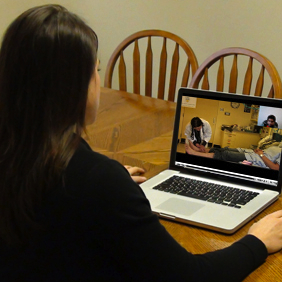Purpose
 Distributed medical education—the training of medical students in remote and rural settings—is an increasingly common alternative to traditional urban-based educational models. Because of the differences inherent in studying in a rural and remote setting, UBC’s distributed medical education program felt their students could benefit from academic feedback provided by urban physicians who regularly prepare students for and assess clinical skills examinations. The RHIME project is an attempt to address those students’ need for formal clinical examination training to compliment their integrated training.
Distributed medical education—the training of medical students in remote and rural settings—is an increasingly common alternative to traditional urban-based educational models. Because of the differences inherent in studying in a rural and remote setting, UBC’s distributed medical education program felt their students could benefit from academic feedback provided by urban physicians who regularly prepare students for and assess clinical skills examinations. The RHIME project is an attempt to address those students’ need for formal clinical examination training to compliment their integrated training.
Overview
This project employs a “YouTube”-like platform to facilitate feedback from Vancouver-based specialists to LICC students. Using a camcorder, students film themselves performing structured clinical exams. They then upload their videos to a secure, password-protected server for review by two general internists that are part of the Centre for Health Education Scholarship. The reviewers’ feedback is video recorded and embedded into the original student video, so that the comments are woven contextually into the students’ performances. Critiqued videos are then uploaded back onto the secure platform which allows for repeated viewing, continued discussion and additional feedback through textual communication on the blog.
Highlights
- Phase 1 completed during the 2009-2010 academic year as “proof-of-concept.” 8 students enrolled, produced 5 videos each.
- Phase 2 for the 2010-2011 academic year is complete; 7 students produced over 40 videos.
- Phase 3 (2011-2012 academic year) is now underway. Three sites are participating, with a total of ten students taking part. Two rounds of videos have been completed.
- Research goals are being outlined for the upcoming years, include how to make the technology platform sustainable and scalable, incorporating new faculty reviewers for specialty content (e.g., Paediatrics) and exploration of the video-based educational model in other academic contexts (e.g., Faculty of Arts).